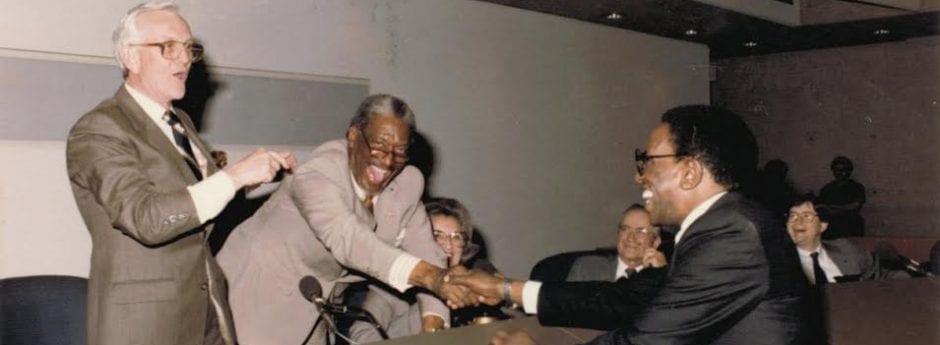
Bob Ray Sanders was born in Fort Worth, Texas in 1947 to a family with roots in the city stretching back 150 years. He was raised in Fort Worth and attended I.M. Terrell High School, at that time one of Fort Worth’s four Black high schools. Sanders graduated from I.M. Terrell HS in 1965, and matriculated at the University of North Texas (UNT). Sanders’ love for journalism began as a child and thus propelled him to get involved with the UNT campus newspaper and school yearbook. The day after graduating from UNT in the spring 1969, he was hired by the Fort Worth Star-Telegram.
As one of the first three African-American reporters ever hired by the newspaper, Sanders became a trailblazer in North Texas journalism. Sanders’ first assignment was the federal courthouse beat and by 1970, he was assigned to the Tarrant County courthouse beat. Working in the county courthouse exposed him to the injustices occurring within the county and the city of Fort Worth. Having been raised in the era of segregation, the mishandling of justice had a significant impact on the young Sanders. He found himself in a position that allowed him to enlighten citizens of Fort Worth regarding the discrimination within their judicial system. Within a few years Sanders had moved over to public television at KERA-Dallas, a division of NPR. Sanders saw success at KERA, moving up from reporter to producer to station manager and finally Vice-President of the TV and radio channel. During his time at KERA, he played a large role in the development of the famous NewsRoom program as a vehicle to educate Dallas and Fort Worth on the civil rights issues that existed in their communities.
Sanders continued on his mission to publish stories impacting minorities throughout the Dallas-Ft. Worth metroplex. It was in 1986 when Sanders covered a Fort Worth City Council meeting during which three young men—Anthony Lyons, Ricky Brodus, and Charles Brown—confronted the city council regarding divestment from South Africa. Sanders connected with them and advised them as they worked to see the end of Fort Worth investment in the South African apartheid regime. By this time, Sanders had returned to the Star-Telegram and used his platform to call attention to this Pan-African issue.
Sanders retired from the Star-Telegram after a 20+ year career. He now works as the Director of Communications for the Fort Worth Metropolitan Black Chamber of Commerce.
